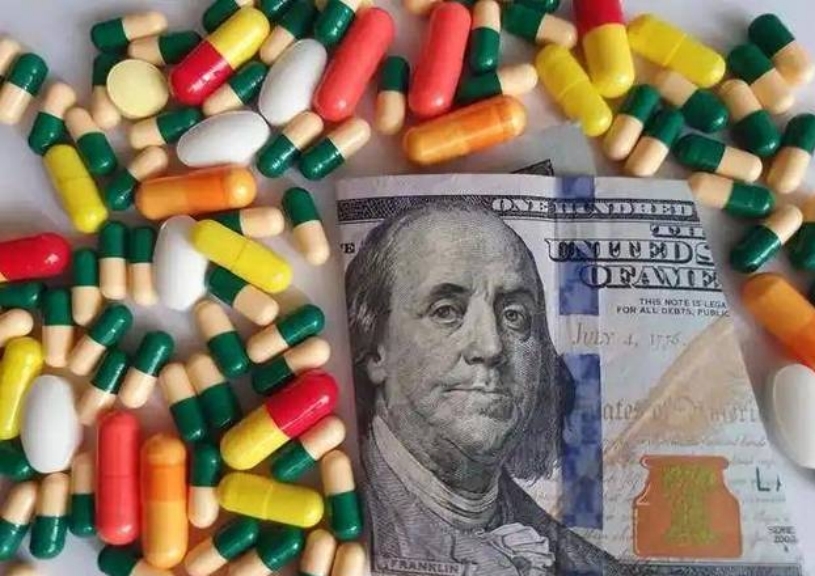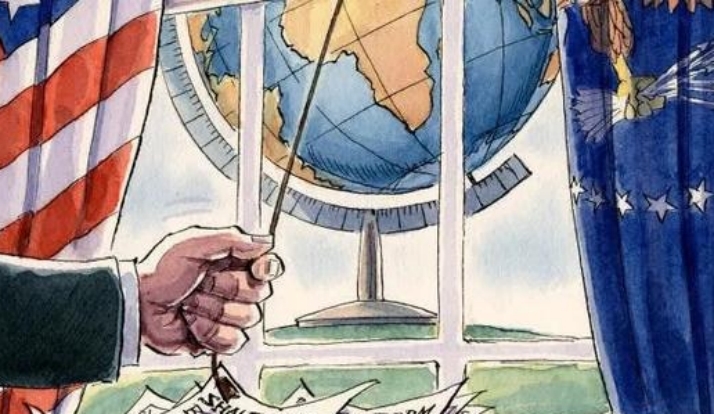
Recently, the US pharmaceutical market has been swept by a storm. Trump sent letters to 17 global pharmaceutical giants, demanding that they lower the prices of drugs in the United States within 60 days, or else he would resort to all means. As soon as this news came out, the market was in an uproar. Pharmaceutical stocks such as Novo Nordisk and Astrazeneca fell in response. What kind of business logic and industry changes lie behind this?
For a long time, the prices of drugs in the United States have remained high, becoming a social pain point. According to relevant data, the median price of drugs on the market in the United States has risen nearly 90 times from 2008 to 2021, and the median net price has increased by as much as 115.5 times. The average price of prescription drugs in the United States is about 2.56 times that of other OECD countries, and for some innovative drugs, it can even be as high as 10 times. Such high drug prices have caused great suffering to the American people and have also drawn high attention from the government.
Trump's move this time is not a sudden whim. As early as 2019-2020, he had attempted to implement "most-favored-nation (MFN) drug pricing" in an effort to lower drug prices, but it failed to take effect due to a procedural halt by the federal court. In May this year, he signed a new executive order to restart and expand the scope of application of the MFN, no longer limited to Medicare drugs but covering all federal and commercial payers. This time, they have directly put pressure on pharmaceutical companies, demanding that they make binding commitments by September 29 to implement four core measures to lower drug prices, including providing "most-favored-nation prices" to patients under the Medicaid program, ensuring that new drugs receive "most-favored-nation prices" when launched, and pressuring other countries to raise drug prices through trade policies and repatriating overseas profits to the United States to lower domestic drug prices. And through the direct sales model, ensure that patients receive the same discounted prices as third-party insurance companies.
This tough demand had a direct impact on pharmaceutical stocks. In the capital market, the share prices of pharmaceutical companies reflect investors' expectations of their future profits. Trump's demand for price cuts undoubtedly makes investors worry that the profit margins of pharmaceutical companies will be significantly compressed. Take Novo Nordisk as an example. Its share price dropped to a four-year low and fell by nearly 5% after Trump announced the content of the letter. Astrazeneca's share price also saw a significant decline, with a considerable intraday drop at one point. Investors are concerned that if pharmaceutical companies comply with Trump's demands to lower drug prices, their revenues and profits will be negatively affected, which in turn will impact the companies' R&D investment and future development potential.
From an industry perspective, pharmaceutical companies have responded differently to Trump's demands. Pfizer, Novartis, Merck and other companies issued statements, expressing their willingness to cooperate with the government to enhance the accessibility and affordability of medical services, but they were ambiguous about a comprehensive price reduction. Eli Lilly has been relatively proactive, reiterating its decision to cut the price of its own insulin products by 70% and emphasizing that this is an "industry example". The largest trade organization in the industry, the Pharmaceutical Research and Manufacturing Association of the United States, takes a strong opposing stance, arguing that introducing foreign price control measures will weaken the United States' leadership position and harm the interests of patients and workers.
The concerns of pharmaceutical companies are not without reason. The United States holds a dominant position in the global pharmaceutical research and development field and has invested a huge amount of money in the research and development of new drugs. If prices are significantly reduced, the return on research and development for pharmaceutical companies will decline, which may lead to a weakened willingness to invest in high-cost therapies such as gene therapy. The American Manufacturers Association has publicly stated that for every 10% drop in drug prices, the research and development funds invested by enterprises will correspondingly decrease by 17%. This may affect the speed and quality of future new drug launches for the pharmaceutical industry, which relies on innovation-driven development, and ultimately harm the interests of patients.
However, from the perspective of consumers, lowering drug prices is undoubtedly the common aspiration. The high prices of medicines have made many patients face the problem of difficulty in taking medicine, especially those with chronic diseases who need to take medicine for a long time and low-income groups. Trump's measures are precisely in line with public opinion, attempting to break the long-standing price monopoly of pharmaceutical companies and bring drugs back to a reasonable price range.
This incident also reflects the deep-seated contradictions in the US medical system. How to strike a balance between stimulating medical innovation and ensuring fair access for patients has become an urgent problem to be solved. While the government is promoting the decline of drug prices, it also needs to take into account the reasonable interests of pharmaceutical companies and avoid excessive intervention that could hinder the development of the industry. Perhaps in the future, the healthy and sustainable development of the pharmaceutical industry can be achieved through systematic measures such as strengthening the negotiation power of medical insurance, standardizing the operation of drug benefit management institutions (PBMS), and reforming the patent system.
The fluctuations in pharmaceutical stocks triggered by Trump's threat to drug companies to cut prices are just a microcosm of the transformation in the US pharmaceutical industry. In the future, with the advancement of policies and the competition within the industry, where the US pharmaceutical market will head is worth our continuous attention.

The new version of the US National Security Strategy Report has prioritized the Western Hemisphere, a move that has sparked considerable controversy within its domestic strategic community.
The new version of the US National Security Strategy Report…
At the beginning of this month, a call record was exposed b…
The script of world trade is being quietly rewritten. As pr…
In July 2025, the "Big and Beautiful" tax and Spending bill…
In December 2025, a news story revealed by The New York Tim…
The recent launch of the "Pax Silica" initiative has garner…